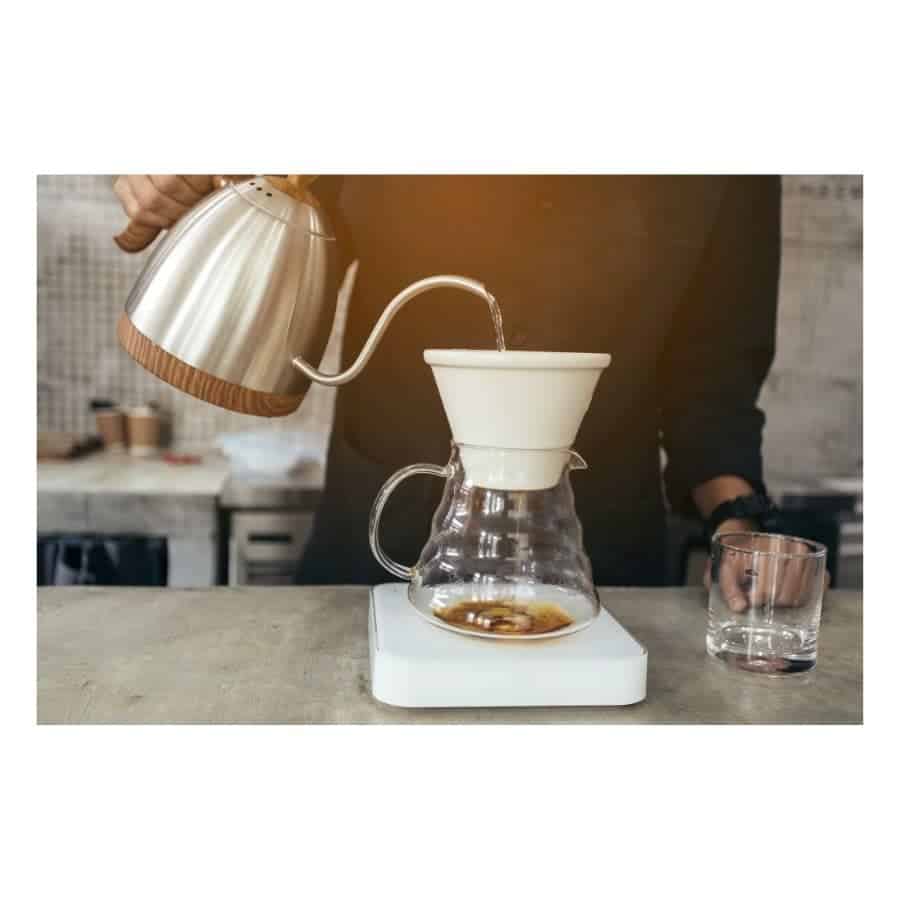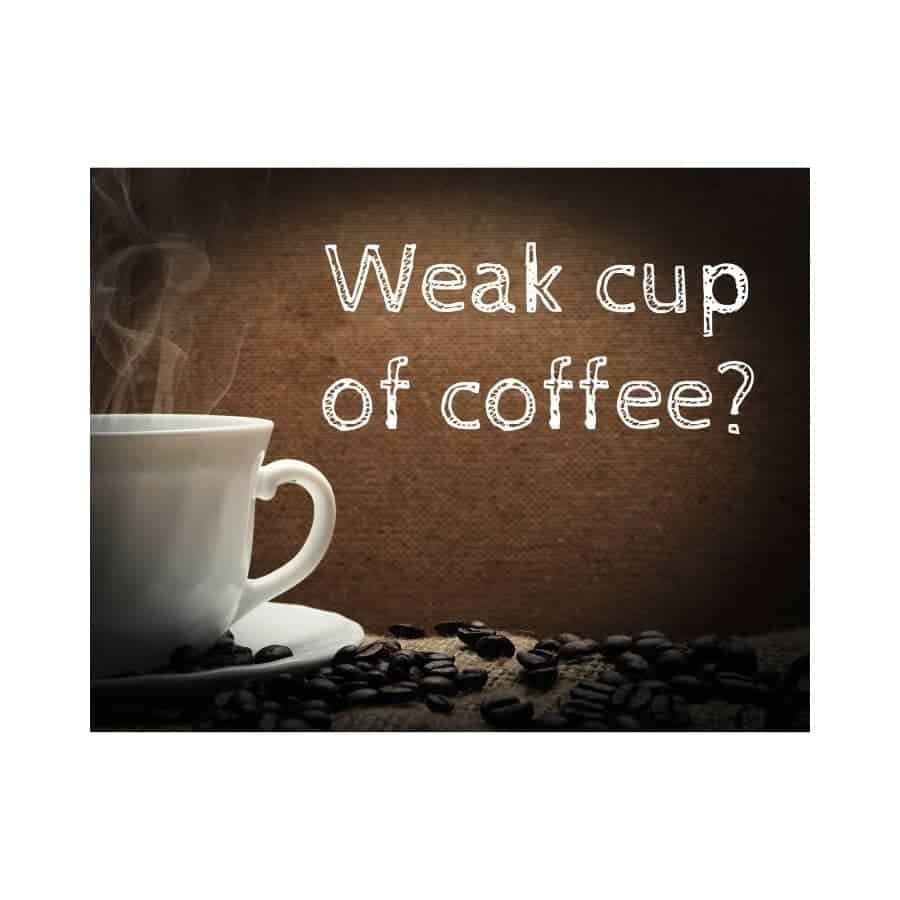
When brewing your coffee, there are many reasons why it may come weak. The following are 5 reasons for why your coffee is weak:
- The relation of coffee to water is too low
- The water temperature is too low
- The contact time between coffee and water is too low
- The grind of the coffee is too coarse
- The roast is too light
Have you made coffee at home only to find it too watery or weak? Have you made coffee to someone else but were unsure of what the result would be?
It may be that you are making one of the above mistakes, many of which I made myself several times.
So, first let us discuss two important terms to understand why coffee can be weak or strong.
Strength and yield
Strenght measures the total amount of dissolved coffee solids. Dissolved means that it has mixed with water. It is the contrary of oil and water, which can not be mixed.
The soluble coffee solids are the components that are present in the roasted coffee bean that when in contact with water, will pass to the brew and deliver the taste of the coffee. There are several types of coffee solids, like Easto (2017) states in her book Craft Coffee.
The following are the coffee soluble solids:
- Fruity acids
- Maillard reaction components
- Caramelized sugars
- Dry distillates
The further along and the longer the brewing lasts the more you will have dry distillates. On the contrary, the fruity acids are the first to dissolve so the shorter the brewing time, the more fruity acids you will have dissolved in relation to the other components and therefore the more acidic your coffee drink will taste.
In the middle you have the caramelized sugars and maillard reaction components. These form specially during the roasting process and are responsible for the chocolate, caramel flavors. When there is too much contact between beans and heat these components will start to taste like burned food.
Strong cups contain more total dissolved solids than weaker cups (TDCS).
“Most good cups fall somewhere between 1 and 2 percent TDCS”
(Easto, 2017).
So this is an indication of one of the first reasons to have a weak cup of coffee: not enough soluble coffee solids present.
The other important concept is called yield.
This is the number of solids present in the coffee beans that have been extracted and delivered to the coffee brew. A coffee with an 18% yield is considered weak. This means that only 18% of the coffee material was extracted.
The desired range of coffee yield is between 18 to 22% coffee material.
More than 22% of coffee material yielded can deliver a strong-tasting cup of coffee.
So what influences strength and yield and therefore produces a weak cup of coffee?
Coffee to water brew ratio.
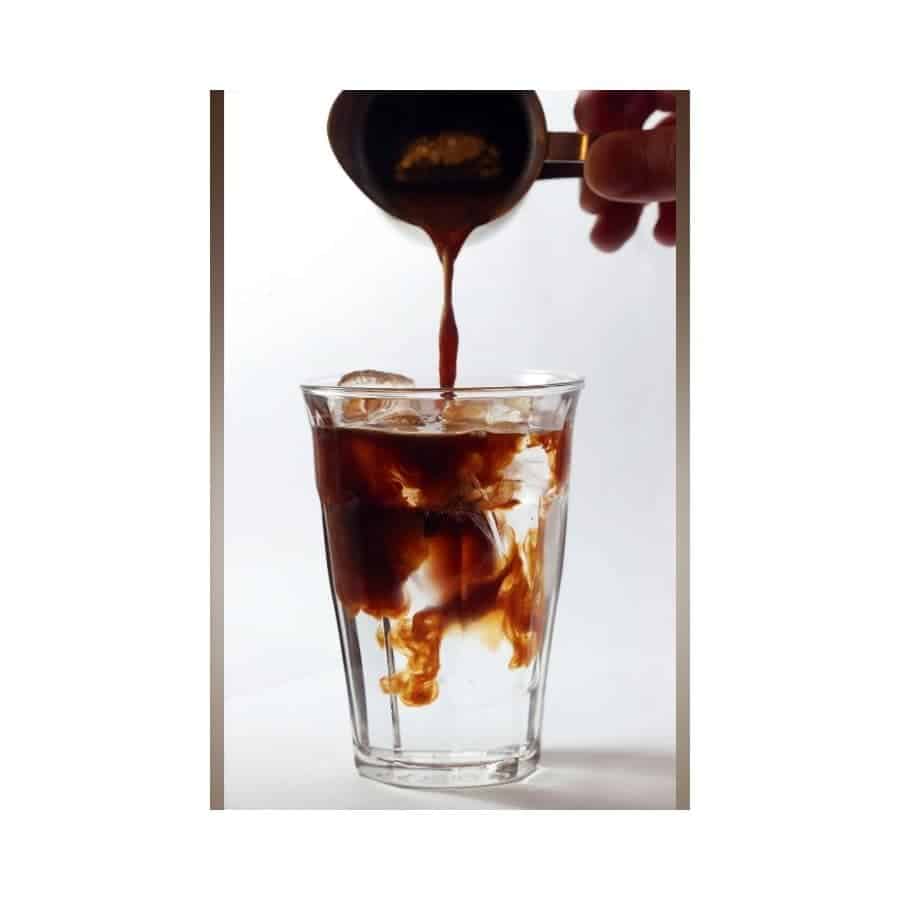
The amount of coffee that you add to water will directly influence how strong your cup of coffee will taste.
I like to drink my cup of coffee by using between 1:12 to 1:15 brew ratio. This means that for every part of coffee you use 12 to 15 parts of water.
The specialty coffee association recommends a brew ratio of 1 to 18 as the golden cup ratio.
This is designed so that cuppers can taste all the flavors and aromas of the coffee.
For me, this is too watery.
I guess you can say the following:
- 1 to 18> borderline weak
- 1 to 15> regular
- 1 to 12> regular
- Less than 1 to 12> too strong
So the first thing you should do if your coffee is weak is add more coffee.
As a general rule, two tablespoons of ground coffee for every 6 ounces of water will give you a 1 to 12 brew ratio, assuming each tablespoon of coffee is around 7 grams of coffee.
Start using that ratio and evaluate. If it is still too watery try adding more until you find the right balance.
You can use the following omni calculator to help you along the way. This tool allows you to adjust the unit of weight and liquid desired depending on where you live. As you can see, the calculator states that 1 to 15 ratio is a strong coffee. But now you know, that you may drink stronger than that depending on your preference. However, it is a great tool and good starting point.
Hot Water temperature
Your water should be within the following range of temperature:
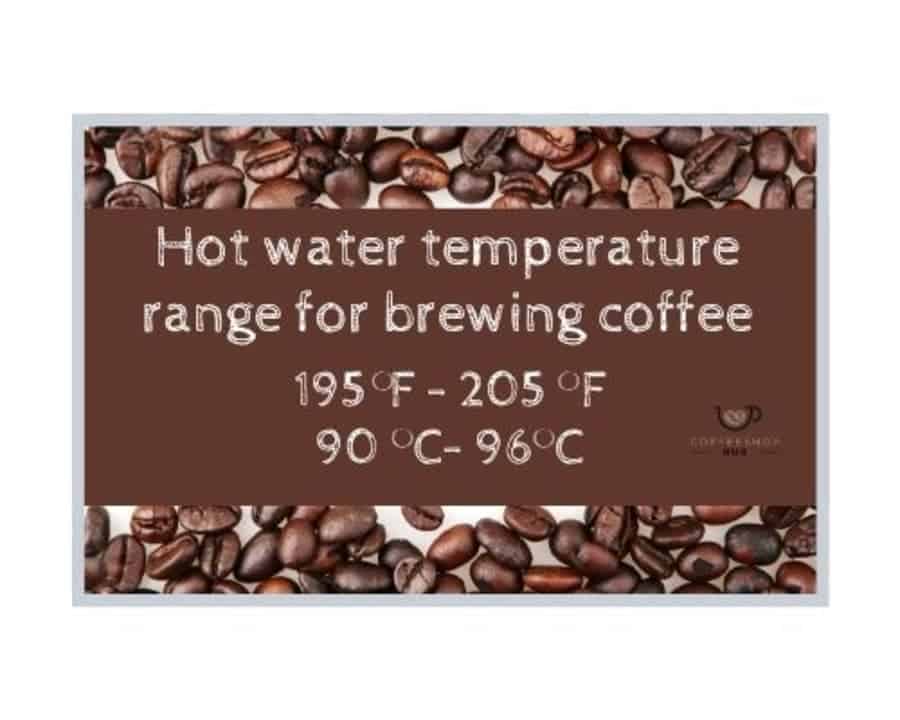
Below this point you will have a greater proportion of fruity acids dissolved, and this will give your coffee drink a more acidic mouthfeel.
Related article: why is my coffee bitter
I had the feeling that the coffee made using my coffee maker was too acidic. I found this when I started brewing by using a Kalita, which is a pour over method.
With Kalita you boil water, then let it get to the desired hot temperature range, and then slowly add water to the coffee. Because the kalita vessel has three holes at the base the brewing time is controlled because the brew cannot leave the vessel with a fast pace.
When assessing the result and paying attention to how the coffee felt and tasted, somehow with this method the cup of coffee felt better, sweeter but more complex at the same time. I was baffled to understand why my every day coffee, made with a coffee maker, felt more acid; and with Kalita more balanced.
So one day, after I had bought a water boiler that had an embedded thermometer, I decided to measure the temperature on the brewing water. To my surprise, it was 80 Celsius (176 Fahrenheit), way low from the recommended water temperature.
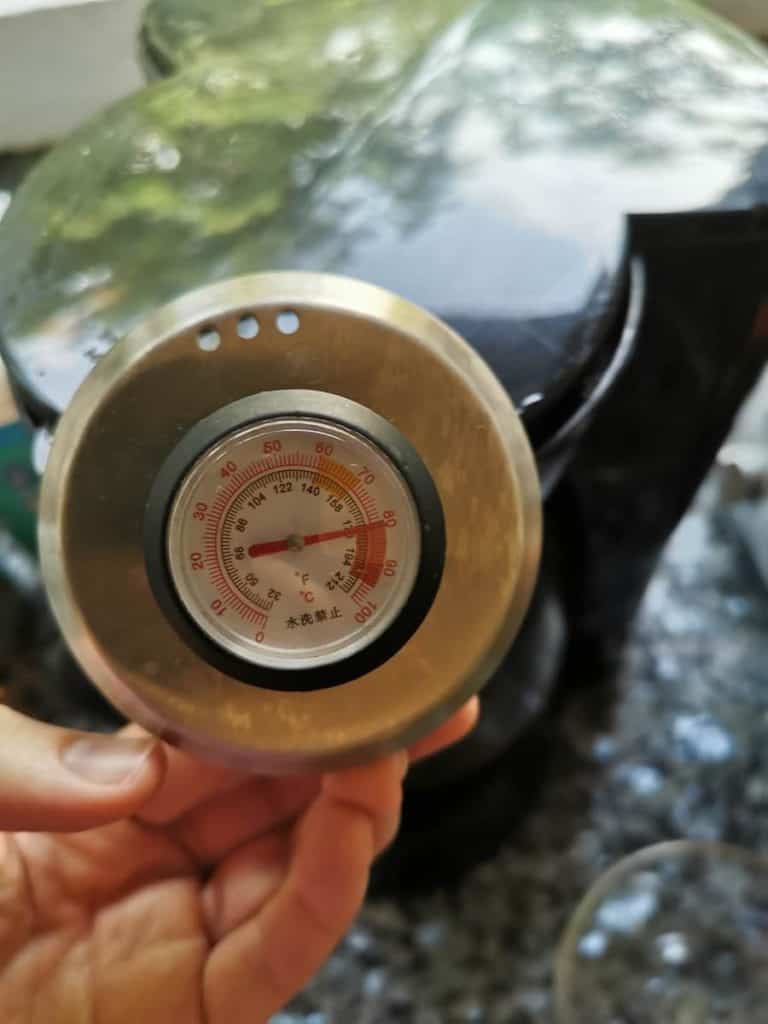
So after making sure you have the right coffee to water brew ratio, check your water temperature, for this may also be a reason for why your coffee tastes weak.
The contact time between coffee and water is too low
The same thing goes with the contact time between hot water and coffee. Usually, depending on the method, the recommended time is around three minutes, for pour-over brewing methods. For Aeropress it is around two minutes and for espresso machines from 20 to 30 seconds. Finally, for the french press it is from 5 to 8 minutes. These are all different methods for brewing coffee.
If the contact time between water and coffee is too short you will have not extracted the necessary amount of coffee solids and your water will taste weak.
The grind of the coffee is too coarse
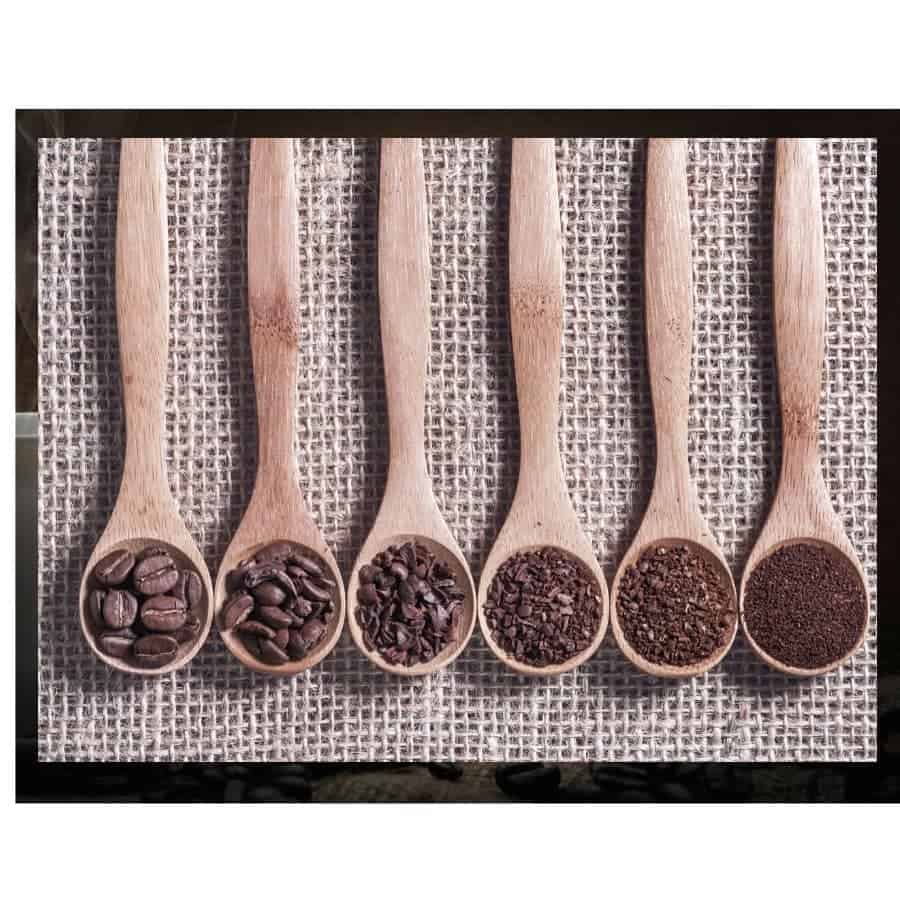
When you grind your coffee you are exposing the inner parts of the bean and increasing the surface of exposure. This facilitates the extraction of coffee solids.
If your grind is too coarse the surface of extraction is lower and therefore you will need more time for water to extract the coffee solids. So in general, the longer the contact time with water the coarser the ground coffee should be and the other way around. This is why for french press method, where the contact time is longer, the coffee is ground coarser, while for espresso machines, they are very fine.
The roast is too light
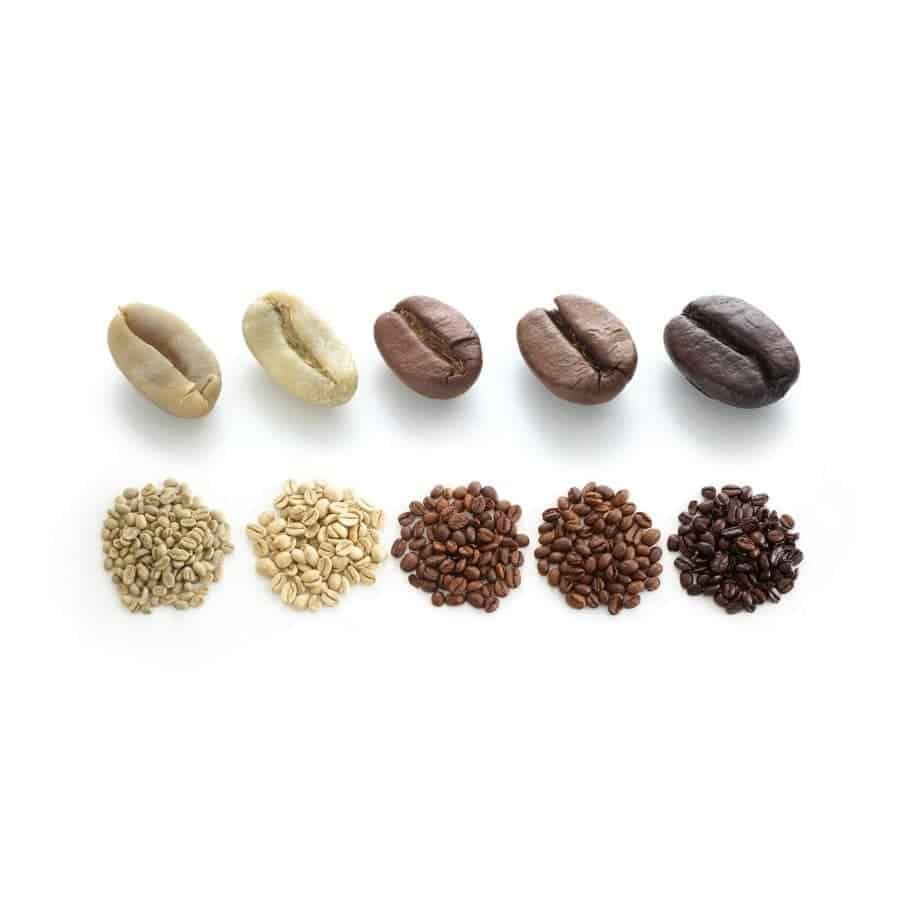
Finally, during roasting, many components are formed that are responsible for the flavor and fragrance of the coffee. The longer or darker the roasting of the coffee beans the more maillard, caramelized and dry distilled components you will have.
These substances are usually responsible for the strong taste of coffee, sometimes even bitter. So, if the roast is on the contrary too light, many of these components will not have formed and the coffee will taste weak.
If this is the case for you, and you feel like you have adjusted all the other mentioned parameters (coffee to water ratio, water temperature, time of brewing, and size of grind) try several types of coffees until you find one that you like.
References
Easto, Jessica (2017). Craft Coffee. A Manual: Brewing a Better Cup at Home. Chicago. First edition.
Specialty coffee association. Brewing Standards. Can be found at: https://sca.coffee/


